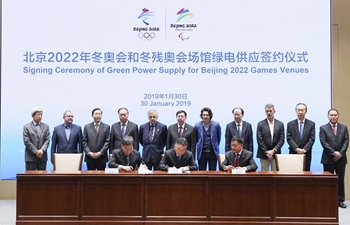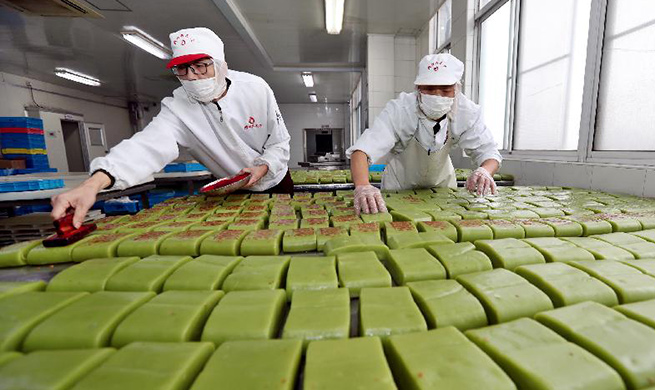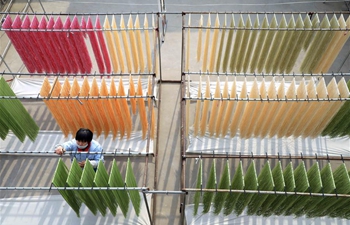BEIJING, Jan. 31 (Xinhua) -- Chinese scientists have developed a new composite that can effectively soak up mercury in wastewater.
Mercury contamination in water has become a global concern as it poses threats to the ecological system and human health. China has set strict limits on mercury emissions from industrial wastewater, and there is a great need for effective ways to remove mercury from water.
Scientists from the Xinjiang Technical Institute of Physics and Chemistry under the Chinese Academy of Sciences have designed a novel polymer-based mercury adsorbent called HPFC. The adsorbent demonstrated ultra-high adsorption capacity toward the removal of mercury ions in water.
After 45 minutes of treatment with 20 micrograms of HPFC in 20 millimeters of water, the concentration of mercury decreased from 798.1 mg/L to 0.02 mg/L, which is below the national drainage standard of 0.05 mg/L for industrial wastewater in China.
The research also disclosed the adsorption mechanism based on spectrum analysis.
The adsorbent is acid-resistant and can be reused multiple times. It has high potential in remediating water polluted with mercury.
The research was published in Chemical Engineering Journal.

















